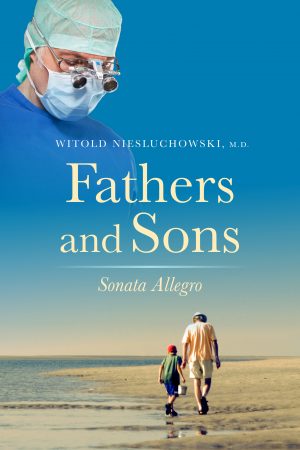I’ve never liked reading fiction novels. Always thought it was a waste of time. I could learn much more from a good non-fiction book and quite often immediately apply the knowledge into my everyday life. Then I discovered John Grisham’s novels. They were not literary novels, but their plots were compelling, the action was swift, and they seemed to carry a message. I could also talk to my friends about the book – everybody seemed to read them. It looked as Grisham made legal thrillers quite a popular topic of conversations, at least among my peers.
So, I thought, if the lawyer by education, although still not much practicing in chosen vocation, Grisham, can write legal thrillers, I could at least try a medical thriller on my own. Besides proper training, I’ve spent many years in the operating room and have witnessed a plethora of story-worthy events. I have plenty of drama and have a lot of material to incorporate in my novels.
I looked into the genre of medical mystery novels and at the first glance the picture was not that interesting. Many “slasher” stories, natural disasters caused by wicked bugs, unreal, mysterious serial killers and countless dead bodies. I didn’t care much for that kind of entertainment and would rather have a story which revolves around the operating table and the doctor’s lounge than an autopsy table or the coroner’s lab.
Then I found two novels written about cardiac surgeons. The stories were decent and were written by people who were either an acclaimed novelists (one) or an aspired to be (the other one). The first one was much better written, the second’s craft was defective, but in both the details were inadequate. I would argue that if you set an action in the operating room, there should be no glaring factual errors. The same holds true for a lawyer in the court who makes a major procedural mistake and if the judge on the bench doesn’t call him on that, the careful reader can throw a flag on the field.
When asked “what should I write about,” most writing teachers will respond, “write about what you know.” But many superstar novelists claim they can write just about anything. They just sit down and write. No extensive research. Creativity flows. They can come up with a believable story, and every time they come up with a blockbuster.
Fair enough. This may work well in a horror genre, paranormal or romance. But can you imagine Isaac Asimov writing without his background as professor of biochemistry in a major university? Or Leo Tolstoy not actually living in the Russian countryside? Georges Simenon learned about his detective and police world and got familiar with a nightlife and crime working as a reporter for a local paper. If Dan Brown was not familiar with a given topic, he spent up to two years learning and writing it. While writing The Hunt for Red October, Tom Clancy did exhausting reading of hundreds of books describing submarine warfare, and did many interviews with submarine commanders. The original manuscript was read by two submarine officers, who found only minimal factual mistakes in the description of the hardware and tactics. And his story was so good that intelligence officers specializing in Russian affairs even thought he had access to the transcripts of the secret communications between Russian submarines! All his readers know how much action took place in the hull of the Russian sub. Finally, Would Joseph Conrad Korzeniowski be able to depict the drama of the life on a ship without his years spent as a member of the French and British merchant marines?
There is another point in the construction of Conrad’s stories (and Clancy’s for that matter). Huge chunks of them take place on the ship. A ship is a closed space. Like a noise in a closed room where sound gets amplified between the walls, the closeness of the sailors on the ship causes even minor conflicts to get bigger, escalate, amplify and, sometimes, explode. And when the author stages it properly, character’s good and bad traits are contrasted, and the writer can use it as Rembrandt was using light in his pictures, to exaggerate details.
And what about moving the action from a ship to the operating room? The same closeness of space, multiple characters involved, a real life drama, life and death scenarios? And watch what happens when you put their people with different tolerance of stress and their unique ways to respond to unexpected or, even worse, expected and feared events? How is this for a good story?
The best part is that one doesn’t have to come up with that many of them. Most of these had already happened. Life is more creative than many readers can imagine. One has to just be there, keep the eyes open, and tuck the events into his or her memory. Later on, just recall them, reassemble and create a neat collage.
Writing of course, is much more than that.
But knowing the facts helps create the more real story. People who know – will appreciate it. And those who don’t… well, they can still learn.


